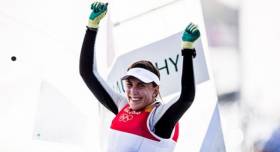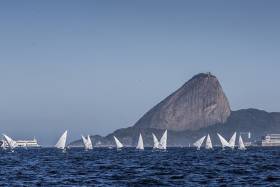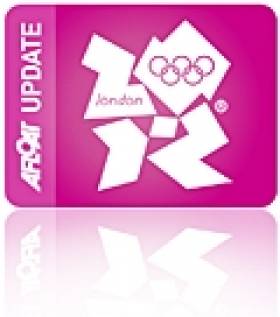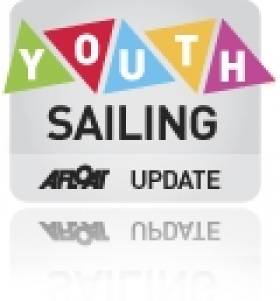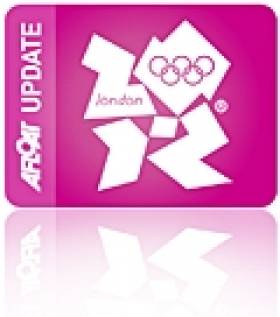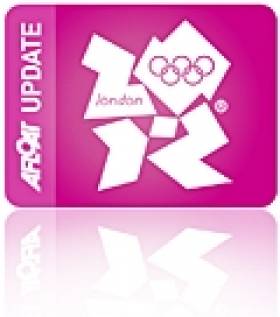Displaying items by tag: James O'Callaghan
Murphy's Victory Boosting The Profile Of Irish Sailing Says ISA Performance Chief
#ISA - Annalise Murphy's success in Rio is bringing the sport of sailing to "a much wider platform", according to the Irish Sailing Association's performance director.
Speaking to Bobby Kerr on Newstalk's Down to Business yesterday morning (Saturday 3 September), James O'Callaghan remarked on the sheer number of people of all ages who turned out for the Laser Radial silver medallist's homecoming in Dun Laoghaire.
"That's the first big change: all of a sudden we have a sports star," he said of Murphy, who was a guest on Friday's Late Late Show.
But beyond the media profile was talk of the business of getting her to sailing's elite level – thanks in great part to investment from Sport Ireland, investment that's focused on the sailing classes where Ireland can be most competitive.
O'Callaghan said taxpayer support is "exactly what's needed for Ireland to succeed on the international stage. But it's limited; the sport budget hasn't grown in the last four years."
As a result, private sponsorship – both of the ISA's programmes and individual sailors – remains a linchpin of the sport's funding, while the new Irish Sailing Foundation aims to attract the backing of philanthropists with a passion for Irish sporting success.
Listen to the whole interview below:
Olympic Sailing Team – Two Months to Improve Before Rio
After a weekend of poor Irish performances at the British round of the Sailing World Cup, the Irish Sailing Association has acknowledged results from Weymouth were 'far from ideal'.
The Sailing World Cup on the Dorset coast, billed as the 'final opportunity for sailors to lay down a marker before the Rio 2016 Olympic Games', was attended by 380 Olympic sailors from 44 nations.
Men’s skiff sailors Ryan Seaton and Matt McGovern from Belfast reached the medal race final which they led for its entirety before sailing the wrong course to the finish line.
London 2012 veteran Annalise Murphy, Ireland’s most successful sailing athlete in the last 30 years, had one of her most disappointing results of the season when she placed 34th in the 39–strong Laser Radial fleet. Murphy has been concentrating on preparations for her second appearance at the games but the Rio venue offers much lighter winds to four years ago when she narrowly missed a podium result.
Andrea Brewster and Saskia Tidey in the women’s skiff placed last in the 49erFX event.
“We have two months to focus on the things we can improve before starting the Olympic regatta in Rio', Team Manager James O'Callaghan said yesterday.
Men’s single-hander Finn Lynch, the youngest ever Irish helm to be selected for Team Ireland did not take part in the regatta due to training-camp commitments in Croatia.
The 49er pair have one further regatta at Kiel Week in Germany later this month before final preparations begin for their second Olympic appearance at Rio 2016 in August.
The first race in the Rio 2016 regatta begins on Monday 8th August when Murphy and Lynch begin their respective events.
A facebook campaign update from the 49er crew:
Podcast: James O'Callaghan Olympic Team Manager
Olympic Team manager James O'Callaghan on a week of top results from Delta Lloyd ten days ago and the prospect of more off the Dorset coast today:
Youth Worlds Places Up for Grabs on Dublin Bay (Podcast)
Olympic team manager James O'Callaghan has played a big role in bringing on Irish team talent. Results have been achieved in recent times in the Topper, Laser 4.7 and Radial and 420 but a top result in the youth worlds would make all the effort worthwhile.
Ireland's best ever Youth Worlds result came in 1996 when Laura Dillon and Ciara Peelo took bronze in the Laser II dinghy. The stated aim for 2012 is to at least equal this result and win a medal on the home waters of Dublin Bay.
Listen to the podcast below to hear O'Callaghan's take on the front runners for April's important Youth selection event.
Watch a preview for July's ISAF Croatian Youth Worlds Event below
O'Leary and Burrows Lie Fourth at Bacardi Cup
Peter O'Leary and David Burrows lie fourth overall at the halfway stage of the Star class Bacardi Cup in Miami today having posted a 7, 2 and 5 in the 93-boat fleet. Promisingly for the Cork-Dublin duo their top results have also been achieved across the wind range, a fact that must bode well for the remaining three races of the series on Biscayne Bay. Full Results HERE. A podcast with Olympic team manager James O'Callaghan is below:
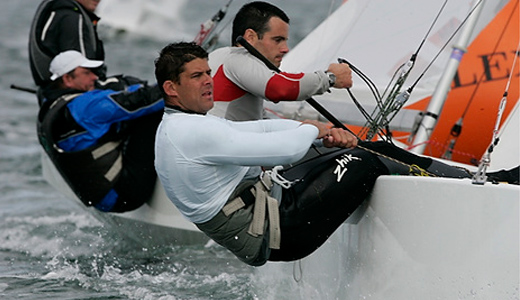
Peter O'Leary and David Burrows - fourth at the half way stage of the Bacardi Cup. Photo: Ingrid Abery. More HERE
Ireland Guaranteed Medal in the Star Class Today (Podcast here)
Ireland is guaranteed a medal today at the British Skandia Sail for Gold regatta in the Star class but Peter O'Leary's clean run in the keelboat this week was not without drama yesterday when his crew Fritjof Kleen slipped overboard 300 metres from the finish line.
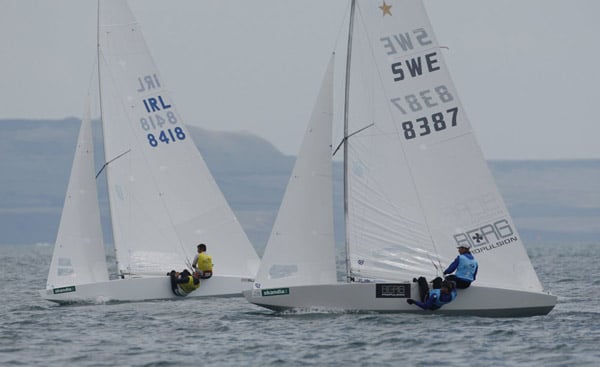
Peter O'Leary and Frithjof Kleen (IRL) against Fredrik Loof and Johan Tillannder (SWE) in the Star class on day 5 of the Skandia Sail for Gold Regatta. Photo: onEdition



























